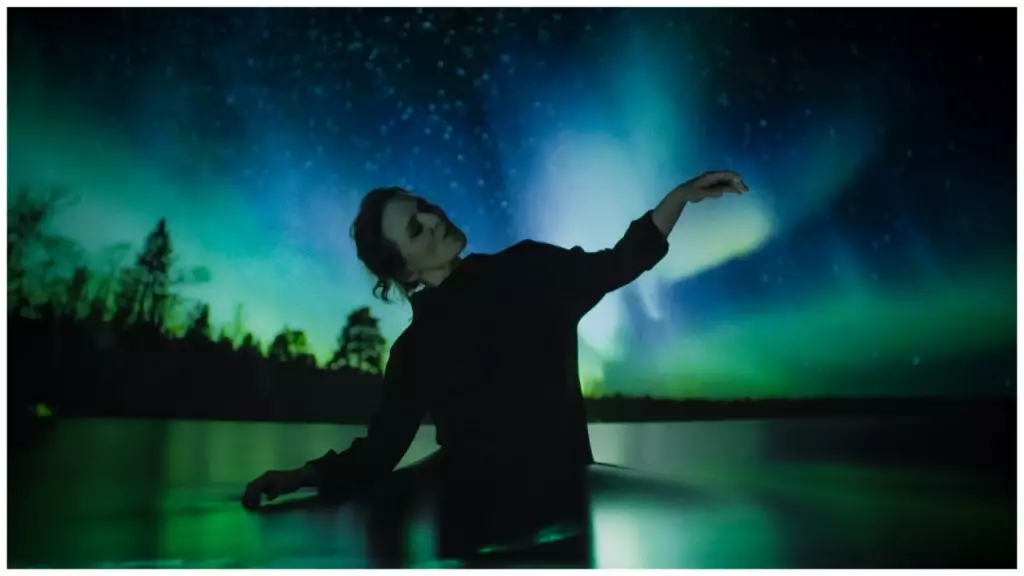“Miss Geraldine Flower” emerges as a captivating and experimental biopic that skillfully intertwines personal narrative with artistic performance. The film, directed by the duo Iain Forsyth and Jane Pollard, is reminiscent of their previous work, “20,000 Days on Earth,” which intricately explored the life of musician Nick Cave. Both films share a commitment to avant-garde storytelling that captivates audiences through a blend of narrative, music, and visual art. With Emilíana Torrini’s ethereal soundtrack acting as the film’s backbone, “Miss Geraldine Flower” transforms a seemingly ordinary life into an extraordinary artistic experience.
At its core, the film weaves together letters, photographs, and telexes that belonged to Miss Flower, who remains an enigma throughout the narrative. The subject of the film is not simply a former figure of the media or a public personality, but rather, a reflection of an individual who played various roles within her private spheres. By centering the film around the personal artifacts left behind by Geraldine Flower, the directors invite audiences to explore the complex tapestry of her identity through the lens of intimate and forgotten forms of communication.
The importance of letter writing as a form of expression resonates deeply throughout the film, serving as both a thematic anchor and a narrative device to explore the fragility of human connections. The unseen narrator, voiced by Sophie Ellis-Bextor, articulates the letter as “a personal, private, permanent connection with another human being,” emphasizing how the words exchanged transform into relics of time and emotion. This reflection on letter writing positions the viewer to consider the intimacy lost in modern forms of communication, which often lack the depth and fervor found in handwritten correspondence.
Torrini’s pivotal role further enhances the exploration of this theme, as she recounts how the letters revived her dormant creativity. Their revelation possesses an almost magical quality, echoing the sentiments of those who recognize the profound impact of a heartfelt letter. The film’s ability to capture such nuances demonstrates a deep appreciation for the beauty buried within mundane interactions, reminding viewers of the stories we tell and the memories we preserve.
Visually, “Miss Geraldine Flower” is a treat that combines the surreal with the intimate. Caroline Katz, who plays the titular character, embodies a pastiche of Geraldine’s life, reflecting both on memories and an imagined reality. Her interactions with Torrini create a dynamic that is humor-filled and poignant, grounding the experience amidst its more abstract elements. The creative decision to present Katz in a timeless bistro — a setting devoid of specific periods — reinforces the film’s exploration of memory and identity, creating a space where nostalgia can both merge and collide.
The surreal quality of the film is further enriched by the inventive choreography designed by Kate Coyne, which often feels alien yet inviting. Within her movements lies an emotional undercurrent that dances alongside Torrini’s music, culminating in moments that are both visually striking and conceptually dense. It’s a delicate balance, harmonizing disparate artistic elements to contribute to the film’s narrative without overshadowing its central themes.
One of the most intriguing aspects of the narrative is the thread of mystery woven around Miss Flower’s personal life, incorporating references to spies and veiled messages. The film playfully poses questions about the authenticity of her letters — are these mere expressions of love, or do they hide secrets that echo the paranoia of a previous era? This enigma evokes a sense of intrigue, challenging audiences to linger in the ambiguity of human connections.
Throughout its runtime, “Miss Geraldine Flower” asks its viewers to abandon traditional expectations of a biopic, favoring instead an experience laden with artistic abstraction. The vagueness surrounding Geraldine’s life encourages exploration, mirroring the complexities of intimacy and the narratives we construct about those we love.
“Miss Geraldine Flower” serves as both a tribute and an inquiry into the fabric of human relationships, articulated through an experimental lens. The film resonates not just for its artistic complexity, but for its engagement with broader societal questions about connection, intent, and identity. In a world where authentic communication may often be overlooked, the film is a reminder of the profound impacts of sharing one’s inner thoughts and emotions — a beautiful, intangible legacy, forever captured through the art of letter writing.


Leave a Reply